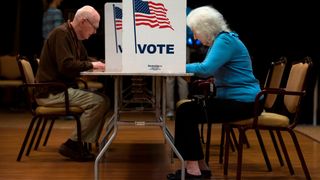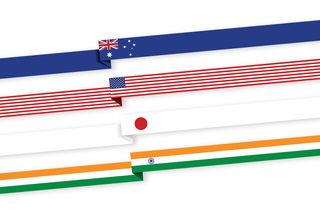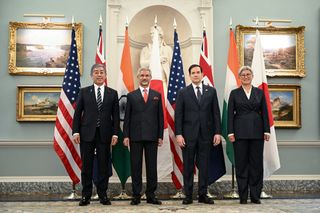Diehards from both parties in the US presidential race claim that “democracy is on the ballot” in 2024.
But in some US states, Americans will be directly voting on the future of their democratic processes when they head to the polls in November.
Beyond choosing their president and representatives in the House and Senate, voters in about half the 50 US states also have the option to adopt new laws directly, via mini referenda known as “initiative ballots”.
This November, particularly in the American West, the political system itself will be on the ballot.
Voters in Colorado, Oregon, Nevada, Idaho, and probably Arizona and Montana, as well as the District of Columbia, will vote on whether to switch from a first-past-the-post to “ranked choice” ballot – preferential voting, in Australian parlance.
In most cases, this move would be accompanied by a more open primary system to ensure a more diverse range of candidates, even different wings of the major parties, can compete.
Other reforms are seeking new ways to administer elections and draw boundaries independently, and boost turnout.
The result could be American election processes that more closely resemble Australia’s – which are often referenced favourably by US reformers.
But transplanting such Australian-style procedures into a US system that is complex, unwieldy, decentralised and, in many ways, dysfunctional, is no easy task.
Under the US Constitution, elections are largely the preserve of the states rather than the federal government, and whichever party is in power at the state level commands tremendous influence – such as the ability to gerrymander district boundaries.
This is one of many reasons modern American politics has become so deeply polarised, marked by dwindling trust in political institutions and those who serve in them.
United States Studies Centre polling finds that large majorities of Americans and Australians continue to worry about the lack of compromise between Democrats and Republicans (81 per cent) and the risks of political violence (79 per cent).
Against this backdrop, ranked choice voting is seen as a tool to help move US politics back to the centre. Because candidates may need broader support in the form of second and later preferences, they are incentivised to appeal to a wider electorate, beyond the small sliver of more devoted, and therefore often more extreme, voters who turn out in closed party primaries.
And early indications are that this could hold true. Alaska and Maine – the two states which already use ranked choice voting – boast the most bipartisan delegations in Congress.
Alaska’s 2022 Congressional race saw Sarah Palin lose to a native Alaskan, Mary Peltola, who campaigned as an inclusive centrist and reached across the aisle to her opponents, including Palin.
The new system also enabled Republican senator Lisa Murkowski, a noted Trump critic, to retain her seat on the back of strong preferences flows from her excluded Democratic opponent – and delivered a bipartisan governing coalition in Alaska’s State Assembly.
But that’s not to say it’s all been smooth sailing. When Alaskans head to the polls this November, they will also be given the option to return to their old voting system. In Missouri too, a constitutional ban on ranked ballots will be on the ballot, mirroring steps taken in other Republican-led states such as Florida, Tennessee and Kentucky to ban the system entirely.
Elsewhere, the promise of a more competitive politics being imposed on them by their own voters has alarmed incumbents, both Republicans and Democrats alike.
In Arizona, judges have taken the Republican legislature to task for producing a deliberately convoluted description of the ranked choice reform to mislead voters into rejecting it, and ordered a re-write.
In Washington DC, home to more PhDs per capita than anywhere on the planet, the dominant Democratic Party claims that casting preferences is too confusing for the electorate to handle.
In both cases, the real story is one of incumbents resisting a more open and representative political system.
The Australia experience also suggests giving minor parties greater voice can also benefit major parties, who can win their preferences, while penalising more extremist elements.
As former Home Affairs Minister Clare O’Neil has argued, Australia’s democratic experience can be a global source of ideas and inspiration – a kind of national soft power.
And if American voters overcome the fear campaigns being levelled from all sides of politics, our electoral system could become Australia’s latest export to the United States come November.










